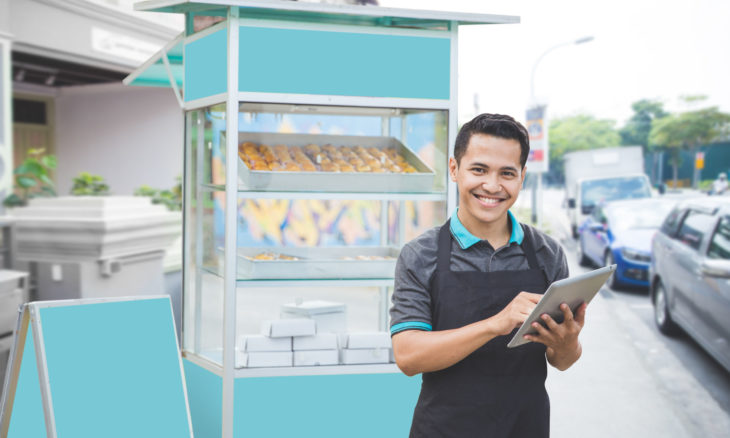Artificial intelligence (AI) is rapidly breaking into almost all sectors of society, and the restaurant industry is no exception. Here are six ways AI is reshaping how the restaurant industry functions.
1. Assisting With Scheduling
Shift scheduling is exceptionally tricky in the restaurant business. There are so many fluctuations to contend with, ranging from the number of restaurant reservations to the amount of foot traffic arriving. But, AI shift-scheduling tools can help.
Deputy is an app brand that uses AI to help managers plan the ideal schedule. It takes data from multiple places and pools it to create optimized schedule forecasts. It even places the best person on every shift based on parameters that users set. Since the app learns through use, people can create similar schedules from week to week with minimal effort.
2. Facilitating Smarter Ordering Kiosks
Most people are familiar with going to fast-food restaurants and giving their order to someone via a speaker. That’s still an option, but there’s a growing trend of restaurants rolling out AI order kiosks.
McDonald’s is testing 700 of them during a trial. They suggest foods or beverages to customers based on a variety of factors such as the weather or trending items. Sonic Drive-In is doing something similar, but those ordering stations will have a voice assistant that corresponds to the menu offerings. It will also work like the McDonald’s technology by proposing possibilities of things to order, although Sonic says it may individualize some suggestions.
3. Helping People Make Restaurant Reservations
Booking a table at a restaurant is sometimes essential, especially when people want to dine at in-demand, new restaurants or go out to eat in big groups. AI can streamline the reservation process. Some bookings occur through smart speakers or phones with voice assistants. Statistics indicate 45% of people make reservations through their voice assistants.
In other cases, the reservations happen through dedicated apps that use AI. One of them called Allset allows people to place their orders and even pay in advance at more than 2,000 U.S. restaurants. AI comes into the picture by analyzing peak hours and capacities at restaurants, plus screening for people who try to abuse the app’s free credit perks.
4. Giving Kitchen Managers More Information About Food
The people who have leadership roles in restaurants know they’re responsible for sourcing food that’s safe and as described to the consumers who buy it. For example, Canada, in particular, has a substantial problem with inaccurately labeled seafood. Something advertised as wild salmon may be farm-raised or not salmon at all.
A company called Tellspec makes a handheld AI scanner that can test fish, fruit and more for authenticity. It also has a standalone app that can search food labels to spot potential allergens or alert people to health impacts.
5. Providing People With More Ways to Engage With Restaurants
What happens when people want information directly from a restaurant outside of business hours? Many of them now use chatbots to get information. Pizza Hut’s chatbot, which the company launched in 2016, allows users to place orders or get the scoop on the latest promotions by chatting with a Facebook Messenger bot.
Additionally, TGI Fridays has a chatbot individuals can use to find the locations nearest them, learn about the most popular cocktail varieties and get other questions answered in real time.
6. Reducing the Likelihood of Costly Restaurant Location Mistakes
CNBC reports location is a top factor that makes restaurants fail. Sometimes, places that seem like they’d be excellent for new dining establishments don’t have the customer base to support the business. Fortunately, location-based AI tools can aid this part of the planning process. Location intelligence platforms examine every possible variable and give reports that entrepreneurs can use when picking the best places to operate.
Then, once a restaurant opens, the AI can keep generating useful data. It might determine the average distance that people travel to reach the establishment, for example.
AI Is Causing Restaurant Revolutions
This list shows there’s no shortage of ways AI impacts the restaurant industry. It’ll inevitably continue to do so as the technology improves, too.



